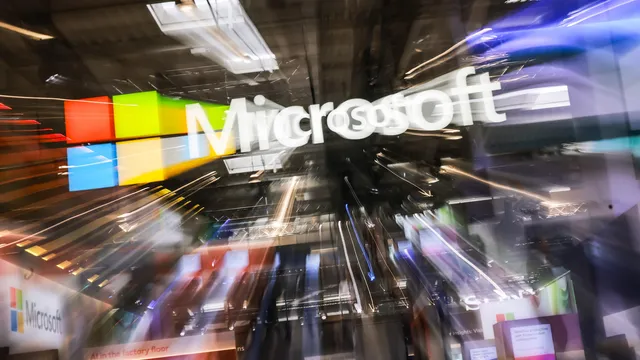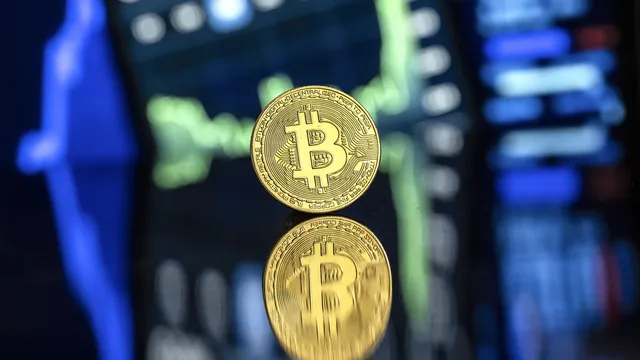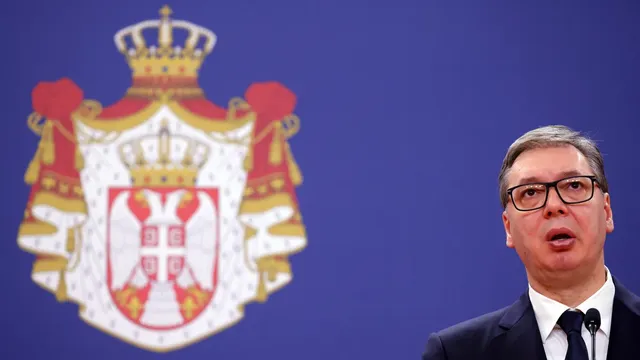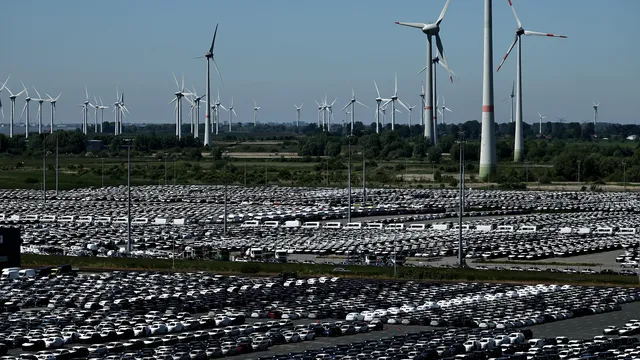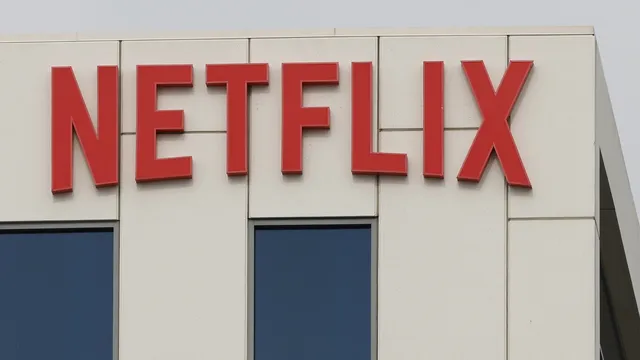On 30 April, Microsoft announced its new European digital commitments in a speech by company president Brad Smith in Brussels.
Microsoft pledged to build a broad ecosystem for artificial intelligence and cloud technologies in Europe, to maintain Europe's digital resilience - even in the face of geopolitical instability - and, among other things, to strengthen Europe's economic competitiveness.
But in the current context, where much of the geopolitical instability comes from the US, is the US tech giant the right choice to help Europe?
On an episode of The Big Question, Microsoft vice chairman and president Brad Smith joined Euronews business editor Angela Barnes to discuss the company's latest plans.
Brad's vision of Microsoft's purpose seems to be "to provide technology to make others, people and organizations, more successful."
As part of the group's plans to develop artificial intelligence and cloud ecosystems in Europe, Microsoft has pledged to expand European data centre capacity by 40% over the next two years. That means more than 200 data centres will be operating in 16 European countries.
And while this development will bring with it immediate employment opportunities, Brad was equally excited about the "multiplier effect" for their customers and the economic benefits that could follow
"I think this is a growth driver for what we like to describe as the AI economy: the economies of the world in the AI era. And I think we're just going to see artificial intelligence as indispensable to almost everything we want to do as businesses, governments, non-profits," Brad said.
Microsoft's investment will be a boon for Europe, which is struggling with competitiveness, but it also shows the company's commitment to continuing to have a presence across the bloc, regardless of geopolitical conditions. Of course, this is a mutually beneficial relationship.
"I don't think Microsoft would have had the global success it has today without our longstanding presence in Europe," the company's president said.
"The truth is, it's more than a quarter of our global business," he added.
The 50-year-old technology giant, founded in Albuquerque, New Mexico, first launched its iconic Word word processing program in 1983 and witnessed its first entry into the European market by offering the program in French and German. Paris is also where Brad personally began his Microsoft career in 1993.
As part of its commitment to maintaining Europe's digital resilience even in the face of geopolitical instability, Microsoft added a clause to its agreements with European governments and the European Commission to challenge in court any authority that tried to force it to cease operations in Europe.
"I have every confidence that we will prevail in court. But we've also said that if we don't, we will have a backup group of vendors, partners here in Europe, who will have our code, our software code and our source code stored in a secure repository in Switzerland," Brad said.
He hopes this will allay some people's fears about data security in the EU, while insisting that White House officials have assured him this is not a move they are considering.
Asked how Microsoft would respond in the midst of a potential tariff war between Europe and the US, the company's president said:
"We will accept whatever happens and help our customers adapt, and we will adapt too. But most of all, I want us to be the voice of reason that encourages relationships across the Atlantic that have been indispensable for eight decades now, since the end of World War II, to prevail, to use this as an opportunity for all of us to somehow step back and then re-sign."
"Let's look at the issues that worry people on both sides of the Atlantic, but let's not forget how important these ties are, including for business," Brad added. | BGNES

 Breaking news
Breaking news
 Europe
Europe
 Bulgaria
Bulgaria
